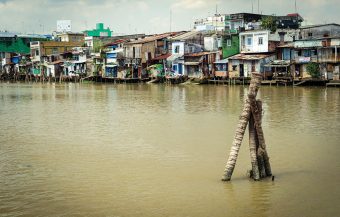
Climate change has been identified as one of the most serious challenges the world is currently facing. Its gravity was recognized long ago, as evidenced by the first United Nations Climate Change Conference (COP1), held in 1995 in Berlin. Since then, 29 conferences have taken place, yielding numerous vital agreements and decisions. Among these, the Paris Agreement stands out, adopted by 196 countries at the 2015 UN Climate Change Conference (COP21) in Paris. The key goal of the agreement is to limit global warming to 1.5 degrees Celsius by the end of this century. This objective has become the cornerstone of all subsequent conferences, including this year’s COP29, held in November in Baku, the capital of Azerbaijan.
The following text highlights some of the most significant decisions and achievements from this year’s conference.
Climate Financing
Climate financing, a critical topic during previous conferences, was prioritized at this year’s event. On the first day, Mukhtar Babayev, President of COP29, warned that current policies are leading to global warming of 3°C, which would have severe consequences. He emphasized the importance of achieving the New Collective Quantified Goal for climate financing (NCQG), which would set the financial contributions from developed countries to support developing nations. Babayev urged countries to update their climate contributions and national adaptation plans by 2025.
By the third day, the first draft decision on the NCQG was published, and by the end of the conference, discussions were facilitated to reach a final agreement.
Multilateral Development Banks (MDBs) announced annual financial contributions of 120 billion dollars for low- and middle-income countries by 2030, including 42 billion dollars for adaptation and 65 billion dollars from the private sector. For high-income countries, 50 billion dollars was allocated, with seven billion dollars designated for adaptation and an additional 65 billion dollars mobilized from the private sector.
IN FOCUS:
- Choose the Right Path to the Electric Future
- Recycling as the Key to Sustainable Development
- CBAM – Challenges and Opportunities for Exporters and Transition to Clean Energy

The Asian Development Bank (ADB) has launched a program for sustainable water use and food security in Central Asia, the South Caucasus, and Pakistan to address the impact of glacier melting. The Green Climate Fund (GCF) supports the program, including risk assessments in Azerbaijan, Kyrgyzstan, Tajikistan, and Uzbekistan. It plans to mobilize up to 3.5 billion dollars to support sustainable agriculture, water resources, and vulnerable communities in mountainous areas.
Azerbaijan’s banking sector has announced an allocation of 1.2 billion dollars by 2030 to support green and sustainable projects, aiming to transition the country to a low-carbon economy.
The most significant success in climate financing at COP29 is the full operationalization of the Fund for Responding to Loss and Damage, which is now ready to receive contributions. The Fund’s establishment was agreed upon during COP27, and the first projects are expected to be funded in 2025. To date, pledged financial support exceeds 730 million dollars, with funds earmarked for small island states, least developed countries, and African nations.
Declarations and Initiatives Launched at COP29

The opening days of the Conference were marked by the adoption of the Baku Declaration on Amplifying SIDS’ Voice. The declaration highlights the severity of climate change and its disproportionate impact on vulnerable groups, particularly small island developing states (SIDS). It calls for urgent action and robust international support to strengthen SIDS’ resilience to climate change and ensure a sustainable future.
The COP29 Presidency launched the Declaration on Reducing Methane from Organic Waste, supported by over 30 countries, including Serbia. The signatories, accounting for 47 percent of global methane emissions from this source, committed to setting sector-specific targets in future Nationally Determined Contributions (NDCs). This decision is critical to achieving the goals of the Global Methane Pledge initiated at COP26 in 2021, which aims to reduce at least 30 percent below 2020 levels by 2030.
Another significant moment was the launch of the Baku Call for Climate Action for Peace, Assistance, and Recovery (BCCAP), which aims to address the urgent links between climate change, conflict, and humanitarian needs. This initiative responds to the growing recognition that the adverse effects of climate change – such as water scarcity, food insecurity, land degradation, displacement, and livelihood disruptions – contribute to conflict and instability, particularly in vulnerable regions.
The Baku Climate and Peace Action Hub was established as part of the initiative. This platform coordinates activities to support the most vulnerable communities affected by climate and conflict-related crises.
Prepared by Katarina Vuinac
The story was published in the Energy portal Magazine RESPONSIBLE BUSINESS



